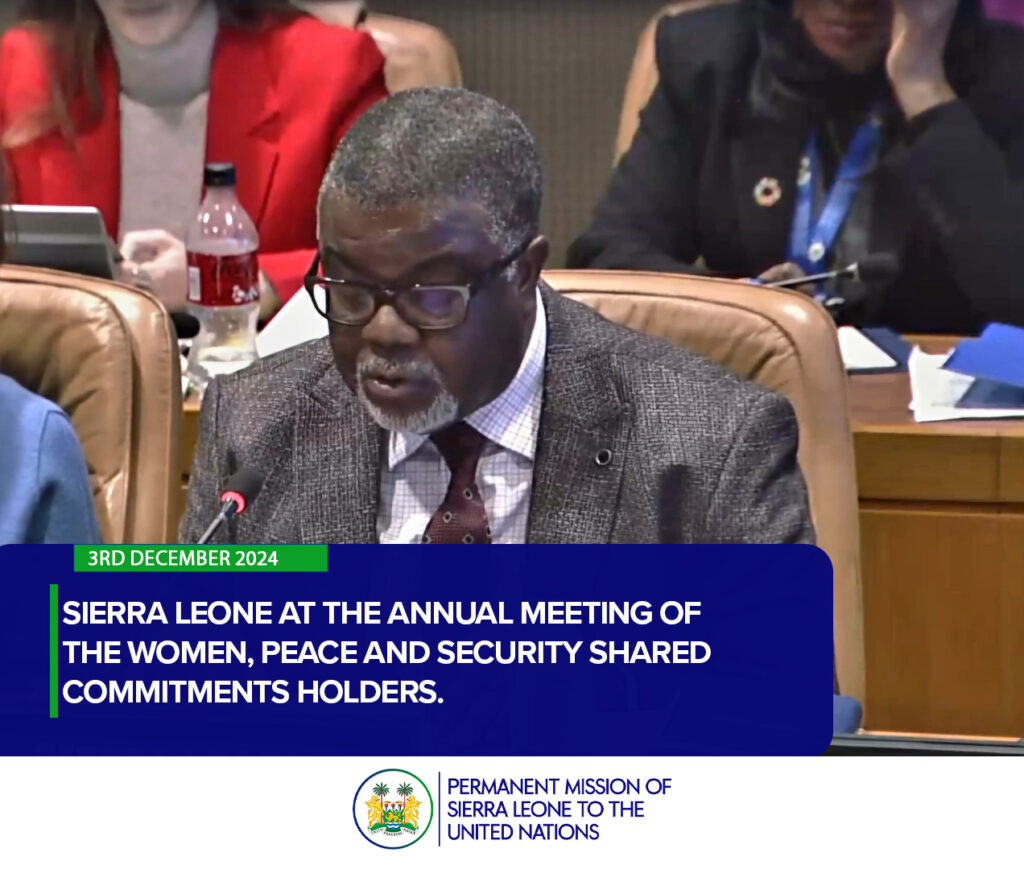ANNUAL MEETING ON THE SHARED COMMITMENTS ON WOMEN PEACE AND SECURITY – 3 DECEMBER 13: 15 – 14 :45 CR 7
- In Sierra Leone’s first year as a non-permanent member of the Security Council, our objective has been to use our lived experiences from war to peace to demonstrate the benefits of multilateralism and inclusive reconciliation and recovery.
- As a small country with a rich origin story of strong African women we bring to the table an unwavering commitment to the women, peace and security agenda. We remain committed to push for the prioritization of women’s empowerment in the decisions of the Security Council, amplifying women’s rights and gender equality in our statements.
- It has been an honor to be the first African country to co-chair the Security Council’s Informal Expert Group on Women, Peace and Security, and we intend to continue in this role next year. We have been an eager participant in the Shared Commitments initiative, the Compact on WPS and Humanitarian Action, the Focal Points Network, and every joint effort to elevate the importance or visibility of this agenda. We prioritized WPS during our monthly presidency in August, including with a flagship event on the impact of the transition of UN missions on the situation of women and girls in those countries.
- But our meetings, our statements, and even our decisions in the Security Council will make no difference to women if they are routinely ignored without cost or consequence. If we already have a robust normative framework, made up of 10 resolutions and many more presidential statements, and WPS is now much more strongly integrated into most of the Security Council’s country-specific decisions, it follows that we should put just as much effort into following up on those decisions and holding relevant actors accountable for implementing them. This requires scrutinizing and asking probing and specific questions about how WPS-related decisions are being implemented in every interaction with government actors, the UN, and other international partners that are active in these situations. It means taking these issues into consideration in all planning and decision-making on cooperation vis-à-vis those contexts. It means putting this on the agenda in the meetings we hold behind closed doors, and not just in our statements for the public meetings.
- Our hope is to do a bit more of that in our second year, and we count on everyone’s support in that endeavor.
Thank you.


